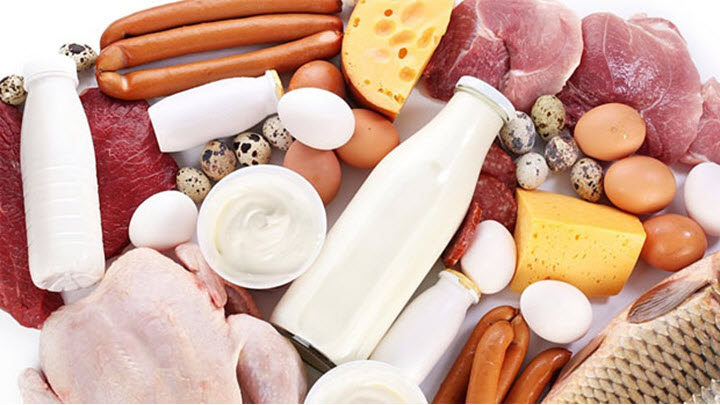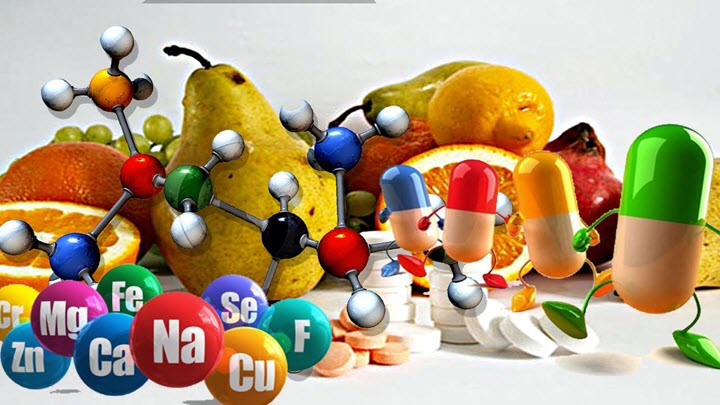Site sections
Editor's Choice:
- White spots on the nails, reasons for what to do, white spots on the nails and folk signs
- Available methods for rapidly increasing blood leukocytes
- Nail and skin fungus will not resist the coffee grounds
- Crocus furniture exhibition. Furniture exhibitions
- Owl tattoo on arm value
- The biggest members in the world
- Fractures of the phalanges of the foot photo
- What is “bad” and “good” cholesterol
- What to do if the skin around the nails dries
- The safest natural varnishes list
Advertising
| Cholesterol and stress |
|
You can often hear the phrase “all diseases are from nerves,” and it’s not far from the truth. And can cholesterol increase on the basis of nerves? Increasing its blood level can lead to atherosclerosis, the formation of blood clots, stroke and even death, so it is imperative to know how this happens and what measures should be taken. Briefly about the diseaseCholesterol is a natural fat that is partially produced by some human organs (liver, kidneys, intestines, etc.), and is partially ingested with food. It plays an important role in the formation of cells and hormones, the assimilation of vitamins, the synthesis of bile. Cholesterol has the important mission of building the base of the cell membrane, as well as ensuring its strength. In other words, it is very necessary for our body. So how is it that along with this, cholesterol in the blood can pose a serious threat to life and health? Doctors divide cholesterol into “bad” and “good” (LDL and HDL, respectively) depending on the density of lipoproteins - complexes of substances that accompany its movement in the blood. Low density of lipoproteins is characteristic of bad cholesterol, and high is characteristic of good.
The subsidence of LDL on the walls of blood vessels in the form of cholesterol plaques has a strong negative effect on blood circulation and overall health. As a result, it can cause:
Such diseases not only significantly worsen the quality of life, but also carry the risk of death. The lipid profile helps to find out the level of cholesterol in the blood. The analysis is done on an empty stomach, the day before the surrender should give up alcohol and strong physical exertion. In addition, it is worth analyzing your appearance: premature aging, yellow specks on the palms, eyelids and forehead often indicate this problem. What influences the level of indicatorsCholesterol level is directly related to lifestyle: it will increase with improper diet and lack of physical activity. But there are other reasons, for example, dysfunction of individual organs or genetic predisposition. Let us consider the factors affecting its level. 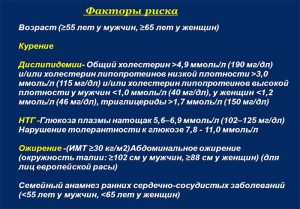 A certain image of a person who finds himself in a zone of potential risk emerges: an elderly man who does not deny himself pleasure, does not pay enough attention to keeping his form, and indeed to his own health. There are some other factors that can affect cholesterol levels in the blood. Returning to the original question, consider one of them - stress. Why stress affects cholesterol
The first group included people who are currently under stressful conditions, such as a deadline or a nervous breakdown. In the second group there were those whose living conditions at that moment did not imply the presence of strong stress, instead there was a normalized working day and good rest. The study showed that the first group had a significantly higher cholesterol level and revealed its dependence on stress.
However, in addition to direct dependence, there is also an indirect one. How do most people cope with nervous tension? Usually with the help of alcohol, an abundance of tasty, but harmful food, cigarettes. In severe cases, a person avoids any activity and prefers to lie down in bed, negating the exercise. All this, as we know, is in itself a threat to health, and in combination with stress, the risk increases many times over. A simple conclusion follows from this: human health is daily work, and on all fronts. You need to monitor not only the quality of nutrition and a sufficient amount of physical exertion, but also the emotional sphere. In the event of stress, it is important to find the strength to cope with it with the least harm to the body. Why stress raises cholesterol is not clear. One of the problems is that stress is difficult to measure. People react differently to things that cause stress. That for one person is stress, for the other - annoying little things. Under stress, a person is under pressure, loses control, he has a feeling of anxiety, anxiety, anger and aggression. When something or someone threatens a person, the body automatically prepares the muscles, the heart for an answer. This will help him escape or respond to the threat. Controlling stress depends on certain factors, and how a person usually reacts to them. It also depends on previous experience. What is cholesterol?Cholesterol is a fat-like substance that is necessary for every cell in the body and has a number of functions. One of them is the replenishment of the cell wall structure. Cholesterol is carried by blood lipoproteins. Therefore, cholesterol levels are measured by lipid levels. There are two types of lipoproteins that carry cholesterol.Low density lipoproteins (LDL) - known as "bad" cholesterol andhigh density lipoproteins (HDL) - "good" cholesterol. Cholesterol is normalNormal cholesterol levels (in milligrams per deciliter) should be: Total cholesterol is less than 200 mg / dL; LDL is less than 100 mg / dL; HDL - 60 mg / dL. High cholesterol does not cause any noticeable changes in the body and is diagnosed using blood tests. Scientists claim that . High cholesterol can be controlled through diet and exercise. A diet that helps control cholesterol:
Flickr / ROBERT HUFFSTUTTER A healthy diet should include:Various fruits and vegetables, as well as whole grains; Low-fat dairy products; Poultry and fish; Nuts and legumes; The diet should be low in saturated fat, trans fat, salt, red meat, sweets and sweetened beverages. Physical activity helps control cholesterol levels.Doctors recommend 150 minutes a week of aerobic activity of moderate intensity or 75 minutes a week of vigorous exercise. To reduce cholesterol, about 40 minutes 3 to 4 times a week, high-intensity exercise should be performed. Physical activity may include brisk walking. To reduce high cholesterol, use medication. Stress and CholesterolA number of studies have shown that emotional stress raises cholesterol levels in the blood. The authors say that chronic stress raises the level of the hormone cortisol. This leads to an increase in lipid levels. Smoking is also a factor that raises cholesterol levels. The body responds immediately to stress. When stress occurs, a person's heart rate increases, breathing becomes faster, blood pressure rises. Immediately after a threatening situation, the body produces the hormones of adrenaline and noradrenaline, and it becomes harder for the heart to work. This leads to the release of glucose in the muscles and blood that are used for energy. Fatty acids are also released. Blood cholesterol levels may increase as any free fatty acids are not used for energy. Stress reduces the liquid part of the blood, leading to its thickening. Psychological stress - contributes to the development of coronary heart disease (CHD). Scientists examined in detail 310 people with stable coronary heart disease. Half of the participants had mental stress on coronary artery disease. Cholesterol boosts cardiovascular stress response. In people with high cholesterol, changes occur in the artery walls. It makes the arteries less elastic. Bibliography:
Like the news? Follow us on Facebook Cholesterol is a natural fatty substance found in the cells of living organisms. It is known that the percentage of cholesterol in the blood may be associated with the risk of atherosclerosis due to the formation of plaques in the blood vessels. Scientists are concerned about finding reasons why cholesterol rises. They measured the amount of fatty spirits in the body of prosperous people with a normalized daily routine and the absence of deep negative experiences, and then compared the figures with the results of the subjects who were on the verge of breaking or on the eve of the deadline. The results showed that people experiencing negative experiences, cholesterol levels actually increased compared with people who are not experiencing at this moment depressing experiences. Nervous stress affects all processes in the human body, including cholesterol metabolism. How to avoid problems with increasing cholesterol from stress?To stop the increase in cholesterol on the nerves of the soil, you should get out of a stressful state, and also take special means that will help avoid the detrimental effects of mental exhaustion. There are both artificially isolated substances in the form of biological additives, and healing herbswhich are actively used in traditional medicine. Prevent stress can be with the help of special physical exercises, and do not forget about the moral attitude. Nutritional supplementsVitamin C with cholesterolDuring stress, the adrenal glands use vitamin C to create a special stress hormone in the body. Since the consumption of a substance increases many times over, the body's need for a vitamin increases many times over. Sometimes the body needs from 1000 to 2000 mg of a substance per day. Therefore, if it is necessary to increase stress resistance, it is recommended to take from 1 to 2 grams of vitamin as an additional supplement. Studies show that a person who takes 1 gram of vitamin C as a daily norm can qualitatively reduce the manifestation of psychological and bodily symptoms of stress, cholesterol stops rising. Fish oil to lower cholesterolOmega-3 fatty acids help the body maintain balance in stressful situations. During stress, oxidative processes occur in the body that cause damage to the body, and omega-3 acids can interfere with them. Omega-3 is naturally found in fish oil. This supplement does not allow the blood to clot faster, prevents the narrowing of blood vessels, thereby reducing the pressure in the body. Also, fish oil improves the performance of the cells lining the vessels, thereby quickly reducing stress. Significantly decreases the likelihood that cholesterol will rise. During stress, it is recommended to take from 1400 to 2800 mg of fish oil. PhosphatidylserinePhosphatidylserine is one of the main constituents of brain cell membranes. A positive effect on memory, helps in the assimilation of new material. The most important feature is the ability to reduce the effects of the stress hormone, so that phosphatidylserine removes the harmful effects that stress carries. Studies show that the use of supplements in an amount of from 100 to 300 mg per day has a positive effect on memory, increases the body's resistance to stress. In small quantities, the substance is contained in whole milk, eggs and meat. An important factor is that when testing a drug side effects not found. 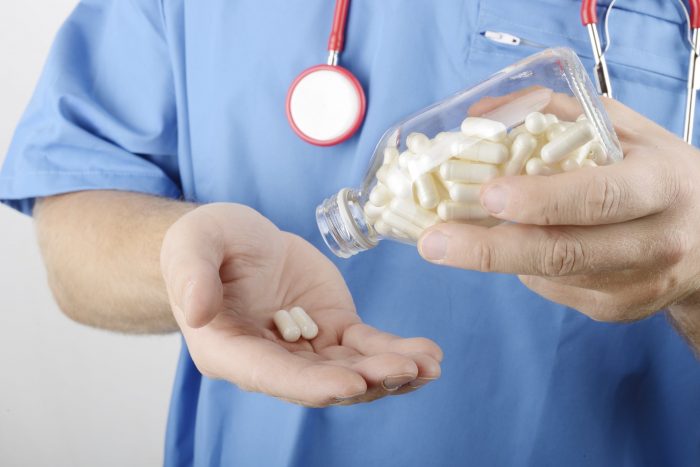 Dehydroepiandrosterone is a vital substance that decreases with age in the human body, which negatively affects cholesterol. Dehydroepiandrosterone is a vital substance that decreases with age in the human body, which negatively affects cholesterol. Dehydroepiandrosterone (DHEA)This is a special substance, the amount of which is determined by the biological age of the organism. DHEA acts as a raw material, which the body uses to produce the hormones needed to ensure vital functions. Most of the substance is produced in 25 years, then there is a global decline, before death the level of DHA is 5% of the required amount. By consuming 1 capsule (50 mg) of DHA per day, a person can not only recover faster from stress, but also prevent cholesterol from rising on nerve soil. Herbal preparationsRhodiola roseaThis healing herb has been used for centuries for the treatment of diseases associated with disorders under stress. Doctors recommend Rhodiola with increased anxiety, depression. The plant relieves muscle tension and improves blood circulation. As a result, the symptoms of anxiety (pain, cramps abdominal cavity). Conversely, the use of Rhodiola Rose activates the production of happiness hormones, which prevent the development of a depressed state. Ginseng and CholesterolGinseng acts as a stimulant. However, the plant compares favorably with artificial stimulants in that at the end of stimulation does not cause depletion of the body. Ginseng allows the body to successfully deal with stress, as the substance increases the rate of enzyme production, and also removes the effects of stressful biochemical reactions. The dosage of the intake depends on the type and strength of the selected tincture. When used, care should be taken, as abuse can lead to dizziness, bleeding and difficulty breathing. Ginkgo bilobaThe components that make up the drug, improve blood circulation, and especially positively affect the blood circulation in the heart and brain vessels. Reduces the risk of blood clots (which is directly related to the dangerous effects of cholesterol), increases the level of oxygen saturation in the tissues. In connection with this, attention is better concentrated, fatigue and stress symptoms disappear. Ginkgo biloba has a positive effect on overall performance and well-being. Available in capsules.
Exercises for body and mindThere are many exercises designed to protect against stress. The goal of each exercise is relaxation, which is opposed to constant stress. Special anti-stress exercises are good because they can be performed in any conditions: at home, on the street, at work. In conjunction with exercise, it is recommended to use relaxing music, aroma oils, since stress exercises are closely related to psychological mood. RelaxationThe person becomes straight, raises straight arms. It is necessary to strain completely all the muscles, linger in this state for about 2 minutes. To simplify the task, one can imagine that the body is in a "frozen" or "petrified" state. Then you should gradually, in turn, relax the different segments of the muscles, starting from the very top. In this way, the first to relax are the fingers, then the palms, the elbow joint, and so on. This exercise can be performed in the supine position. Work with breathingTo relax during stress and lower cholesterol, a person can practice breathing through the account. To do this, you need to learn to control the speed of inhalation, exhalation, and also to hold your breath. At first you just need to count the time to yourself, and then try to make the time of inhalation, exhalation and pause equal. A pause in breathing can be done both between inhalation and exhalation, and vice versa. Work with consciousnessIn the struggle with stress, a figurative representation of heavy thoughts and problems works well. For example, you can imagine how problems leave the head, the body in the form of steam, clouds that dissipate or fly away under the pressure of the wind. The second variant of the exercise will be a fictional box, a chest into which you need to “stack” interfering problems, and then with an exhalation release the whole burden of yourself, sending the box to the desired place (to landfill, to space and so on). So, you can see that, while raising cholesterol threatens the body in stressful situations, there are many ways to overcome the problem. With "stress" cholesterol can be dealt with using special nutritional supplements or contact the help of medicinal plants. Symptoms of psychological stress can be removed by performing specially designed exercises and meditations, as well as surrounding yourself with a pleasant atmosphere. And, most importantly, you should remember about the timely planning of your work schedule, so as not to worry about the work that was not done on time. Cholesterol has different functions. It is included in the group of natural alcohols. This substance is not soluble in water.
Can cholesterol rise on nerves? This question is asked by those who often find themselves in stressful situations. The liver constantly reproduces cholesterol. Its purpose is to fully satisfy the body’s needs for this substance. The intestines, kidneys, adrenal glands, as well as the sex glands deal with this work a little more. This substance is used by the body, both in pure and bound form. It perfectly forms compounds with proteins. Bad and good cholesterolThere is an erroneous opinion in society that cholesterol is dangerous for the body. Under the influence of this erroneous idea, people begin to limit themselves to eating, in order to reduce the amount of cholesterol entering the body. Proteins are responsible for transporting this substance. They are associated with free cholesterol, and then spread it around the body. Proteins that interact with it, there are several types. These are low density lipoproteins. They quietly pass through the vascular wall. In conjunction with them in the blood vessels and cholesterol. If its level is very high, then it is deposited on the walls of blood vessels, significantly narrowing the vascular bed. Triglycerides are another substance that can bind with cholesterol. The splitting of this compound produces a large amount of energy. This connection is a reserve stock of energy. If the need for energy for some reason cannot be satisfied in the usual way, the body uses its emergency reserve. Therefore, the first type of compounds bears the danger to human health. The level of these compounds must be constantly monitored.
What contributes to the growth of cholesterol?The reasons for which may increase the rate of cholesterol, quite a lot. First of all, the patient’s lifestyle influences its level. Large amounts of cholesterol are found in some foods. A list of them has long been known. But they are not to blame for the excess cholesterol. Saturated fats pose a threat to health. In large quantities they are found in fatty meat, sausage, flour and in a variety of products of pastry chefs. Especially at the same time people who are sedentary and overweight. A bad habit like smoking affects cholesterol levels in the blood. Alcohol causes the same reaction. Variations in the cholesterol index are very unhealthy. High cholesterol and its effects on healthHigh cholesterol in the bloodstream contributes to the formation of blood clots. A blood clot can break away from the wall and completely block the movement of blood through the vessel. As a result, the patient develops a heart attack. The plaques may be contained in the blood in the form of small particles, and not overlap the mouth of the vessel. But the whole is against them the immune system. She perceives small sediments as foreign bodies. Begin inflammatory processes. According to scientists, the high cholesterol value suggests that the patient has heart disease. Therefore, it is so important to pass tests and undergo preventive examinations.
Stress and its consequencesFrom stress cholesterol index rises to the highest values. When a person experiences shock, adrenaline and norepinephrine are released into the bloodstream. Arterial hypertension develops, cardiac contractility may increase, blood flow to vital organs decreases, the level of cholesterol and other fatty acids sharply increases. Some people have a habit of seizing stress, and in this way increase the level of fatty acids in their bodies. It is known that experts are very interested in this problem. They checked the cholesterol level in people at rest, and those who were at that time in an anxious state. The result was indicative. People with negative life experience had cholesterol levels several orders of magnitude higher. According to statistics, every third patient who had a heart attack had a high content of fatty acids in the blood. Stress can lead not only to an increase in cholesterol, but also to myocardial infarction. Strongly reduce the amount of cholesterol can not, because it is a vital substance. In most cases, the patient does not notice that he has an elevated level of this substance. Very rarely, there are nodular deposits on the fingers and on the Achilles tendon. They are visible signs of high levels of fatty acids in the patient's body. Ways to reduce the rateIt is quite natural that with a high rate in analyzes, the doctor and the patient face the task of reducing the level of the hazardous substance to an acceptable value. The easiest way is to use plants. Many of them have the ability to affect this harmful substance. The group of such plants include viburnum, burdock, raspberry and other equally common plants. They manage to reduce cholesterol due to:
In addition to plants, there is a whole list of other substances - vitamins and trace elements that have a similar mode of action. Vitamin C is a strong antioxidant, and prevents the component of cholesterol to oxidize. This vitamin affects the transition of cholesterol to bile acid. It has been observed that if you regularly take vitamin C, then the cholesterol rate drops. Therefore, it is necessary to introduce into the diet as much as possible of vegetable products and fruits with high content vitamin C. Another representative of vitamins - E. Also able to influence cholesterol contained in the blood. It is fat soluble and has antioxidant properties. Vitamin E prevents cholesterol from forming blood clots. Doctors advise taking this vitamin when high level fat content in the blood. This vitamin is ingested with seeds, butter, nuts, liver, yolk, oats. Water soluble vitamin B8 is able to lower blood cholesterol. It is produced by the body itself. It affects the absorption of vitamin E and the main objective of this substance is the effect on the metabolism of fats in the body, to reduce cholesterol in the blood. In parallel, it reduces vasospasm and removes toxins from the body. The source of this vitamin are oranges. Another useful substance is calcium. It is usually positioned as a means to strengthen bones. In order to reduce cholesterol, you must take calcium for two months. Calcium is found in large quantities in dairy products and fish. Magnesium can also help reduce the amount of cholesterol in the blood. This trace element is necessary for both the muscles and the heart. This trace element helps to restore cells, promotes better absorption of calcium. Magnesium is found in pumpkin seeds, salmon, beans and other cereal products. Monosaturated fats are found in large quantities in olive and corn oil, nuts, peanut oil and avocado. Many people, having information about an elevated level of cholesterol and its harm to the body, begin to solve the problem on their own, without taking into account that each person has his or her own cholesterol indicator. A doctor who can take into account all the nuances can help in this matter: the patient's age, his weight, the state of the cardiovascular system, the presence of chronic diseases. He will select not only the course of treatment, but also give recommendations on diet. |
| Read: |
|---|
Popular:
Birch hanging or warty
|
New
- The program of intensive moisturizing of the skin on cosmetics bark
- What you need for acrylic powder
- What does owl mascot mean
- Analyzes for pancreatitis: what research should be done and what indicators show
- Owl - a talisman to attract money and good luck
- What bird screams at night with a kitten's voice?
- Cholesterol and stress
- Manicure at home
- Effective facial
- What is a man after a broken leg?

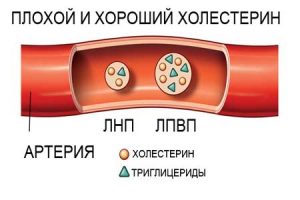 In the first case, it settles on the walls of blood vessels and forms cholesterol plaques, in the second case it contributes to their destruction, taking with it harmful substances to the liver for processing. Thus, we must deal with the increase in the level of bad cholesterol, while good is vital for us.
In the first case, it settles on the walls of blood vessels and forms cholesterol plaques, in the second case it contributes to their destruction, taking with it harmful substances to the liver for processing. Thus, we must deal with the increase in the level of bad cholesterol, while good is vital for us.
 Nervous overstrain can activate many negative processes in the body, including an increase in the norm and the accumulation of bad cholesterol. This is confirmed by studies: data on cholesterol and other fatty alcohols in the blood were obtained and analyzed in 2 groups of people.
Nervous overstrain can activate many negative processes in the body, including an increase in the norm and the accumulation of bad cholesterol. This is confirmed by studies: data on cholesterol and other fatty alcohols in the blood were obtained and analyzed in 2 groups of people.
